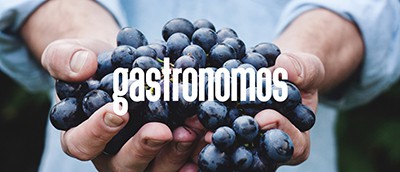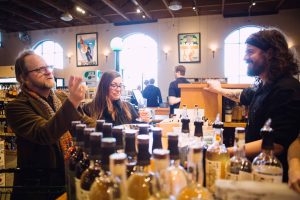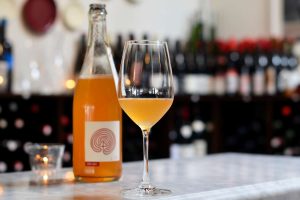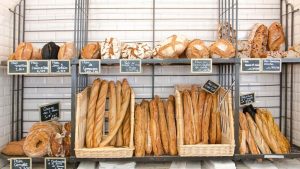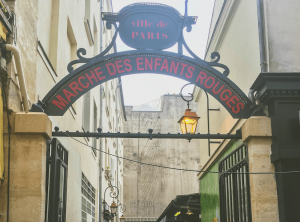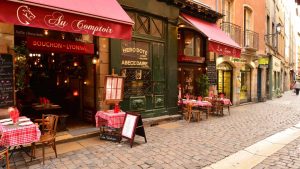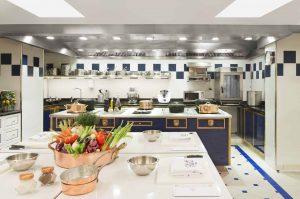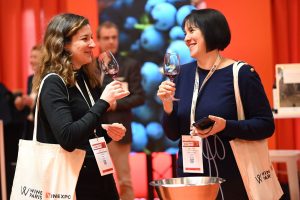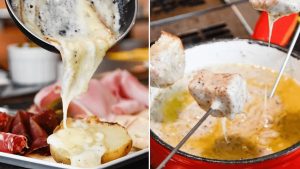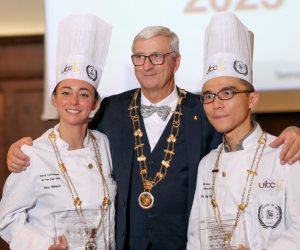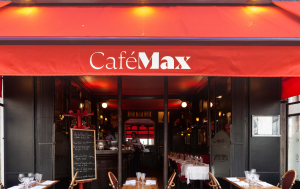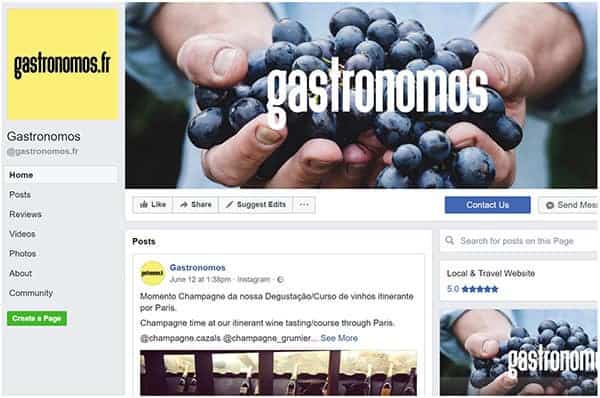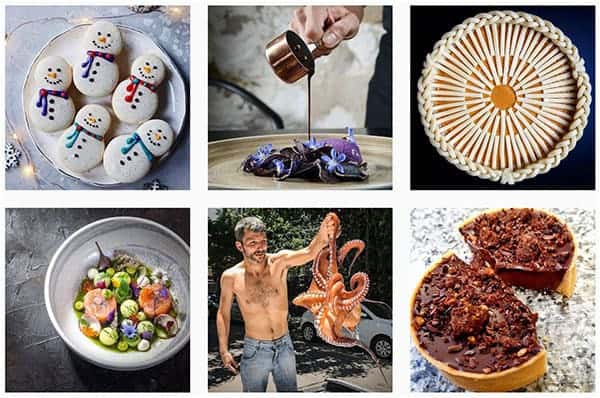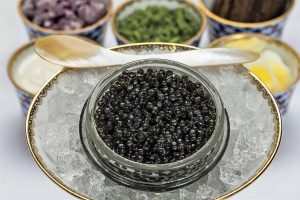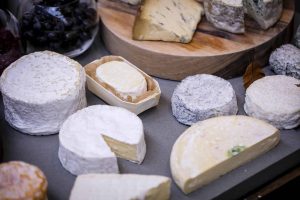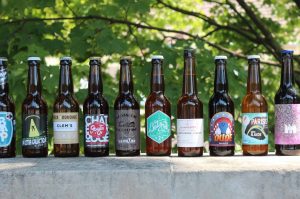It may sound strange, but one of the best places to have a good coffee in the Marais is not on a funky balcony in the iconic Parisian neighborhood. One of the best coffees we’ve had in recent months was at the Arket – a fashion store at 13 rue des Archives.
Newly arrived in Paris, the Swedish brand created in 2017, opened its first store in a 400m² space in the heart of the Marais. The two floors are divided into men’s and women’s fashion, a children’s corner, as well as a corner dedicated to decoration. On the ground floor of the store, with access to a beautiful terrace that is sure to be a hit on hot days, is the café Arket, a café-restaurant with a vegetarian menu where you can taste the creations of chef Martin Berg and his team.
Café Arket’s menu is inspired by Scandinavian ingredients and flavors, uses many spices and also has Asian and Middle Eastern influences in the 29 cafes around the world. The chef also tries to create some recipes with local ingredients available according to the season in each country, such as the excellent blue cheese puff pastry with caramelized onions and almonds – a recipe developed especially for Paris. A good part of the patisseries, sandwiches and salads base are the same in all the brand’s units, thus creating a good regularity and loyalty to the Nordic identity.
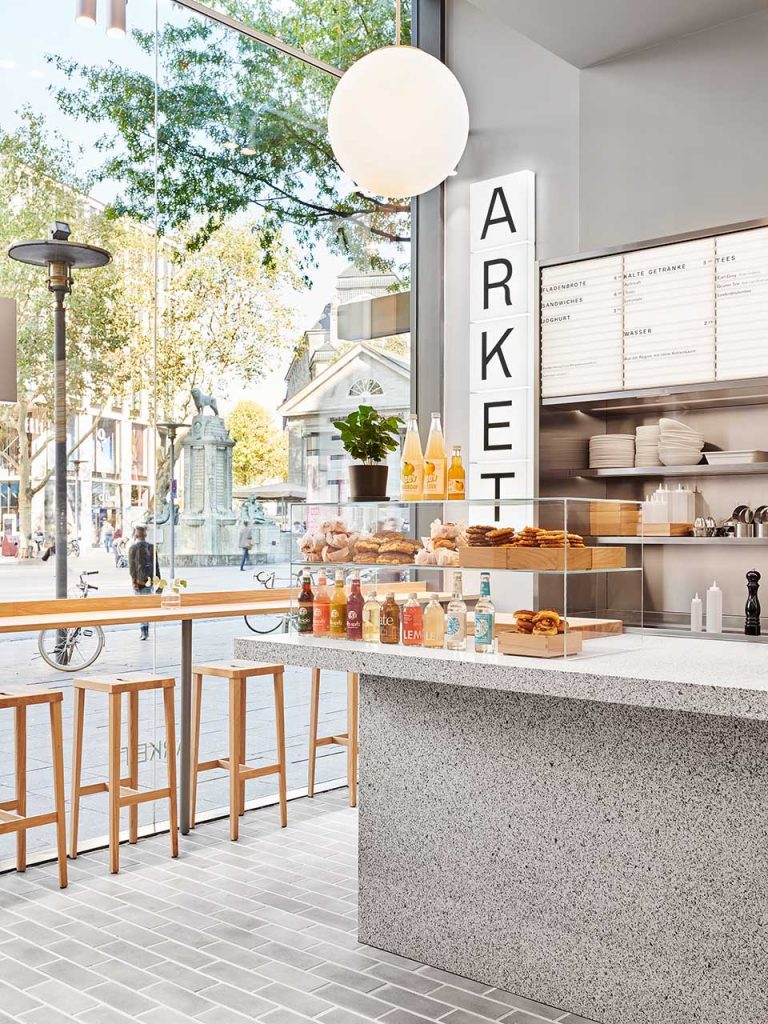
It was on the delicious terrace of the café Arket in Paris that chef Martin Berg gave this exclusive interview to Gastronomos.

Gastronomos: Martin, thanks for having us. Can you tell us a little about the main characteristics of Swedish or Nordic cuisine and how it is present in Arket?
Martin Berg: Yes, when we talk about coffee and what we do, we are referring to a new Nordic gastronomic manifesto. And that was actually something that was created from a group of good chefs and also a chef I worked with before. We were together for 15 years in the Nordic region. In 2003/2004 we saw what everyone else was doing, which was importing French cuisine to Sweden. It’s really good, but we also have super good products in Sweden. We were more concerned with cooking with stuff from somewhere else than what we had.
To be sustainable, we need to value where we live and cook. Connecting with schools, working with better food products, working more with scientists, listening to them and acting accordingly with food producers small and large to generate a sustainable impact at this level too.
Often these actions start in gastronomic restaurants, the super creative ones, almost without limits. But they actually receive few customers per night because they are very expensive and therefore not very accessible. So we started thinking, what can we do about it?
We need to preserve classic and old techniques and ingredients, but not be afraid and have an open mind to new ones, favor animal welfare, produce and think of new ways to present vegetables… So, I think what we do with Arket is a new Nordic food and for people’s daily lives.
Gastronomos: Can you tell us a little about what Nordic cuisine used to be and what it is now?
Martin Berg: I think it’s all quite new, so to speak.
We have ingredients from the sea, from the forests, many roots and so on. But also because it is very cold in winter, we work a lot with canned food. That’s why you fish a lot when you can do that, then the fish is salted, cured and stored. This process is also adopted with dried meats and so on. This is the most traditional food, but even though it is no longer a necessity these days, these conservation techniques are still very present in our culture, including to add flavor to our food. And also like in the most refined restaurants, there is always something smoked, salted or cured, but done in a more modern way.
The Nordic diet is also very grain-based. In the past we ate a kind of porridge every day for breakfast, lunch and dinner. At the Christmas feast we slaughtered a pig, ate well during the holidays, and then went back to eating porridge.
Today is different. Society and the economy have developed in different ways, but it is interesting to see how these things end up coming back to the present day.
And that’s something we also want to promote, like grains… a form of our inheritance. Go back to using a bunch of forgotten vegetables and growing old legumes that are part of our heritage. That kind of agriculture that we like to bring up and talk about.

Gastronomos: And what would you say is different about Arket compared to other vegetarian cafes in Paris?
Martin Berg: We focus on making vegan and vegetarian recipes. In fact, now the menu has been more plant-based, with entirely vegan dishes.
There’s a shift, a shift in the amount of protein we eat that needs to be made. I believe we need to eat more vegetables and less meat, there is still a lot of meat in the world. It is not that we are against the flesh. We just want to be able to make people more open to vegetarian cuisine. That’s why we’re also bringing in vegetarian cuisine, to inspire people to make good choices. We want them to start more conscious habits.
We are present in Korea, China and the UK and adapt to every kitchen. But we also want to maintain the integrity of what we do, because when we talk about what we do and how we think, we want to get people to have a “Wow” reaction.
I think it’s really cool to relate gastronomy like ours to a fashion brand that talks about sustainability. Especially for a customer who isn’t there for the food, but either way they will be exposed to sustainable, modern food.
Gastronomos: ARKET coffee is vegetarian, do you think that in the future it could be completely plant-based? Is that in your plans?
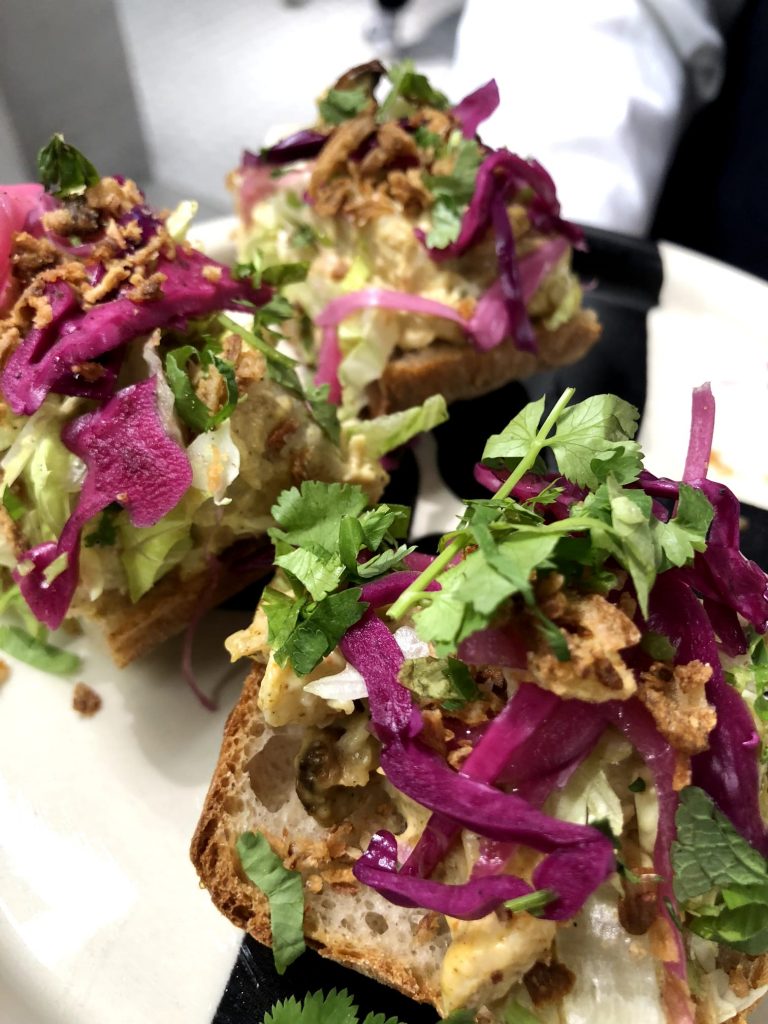
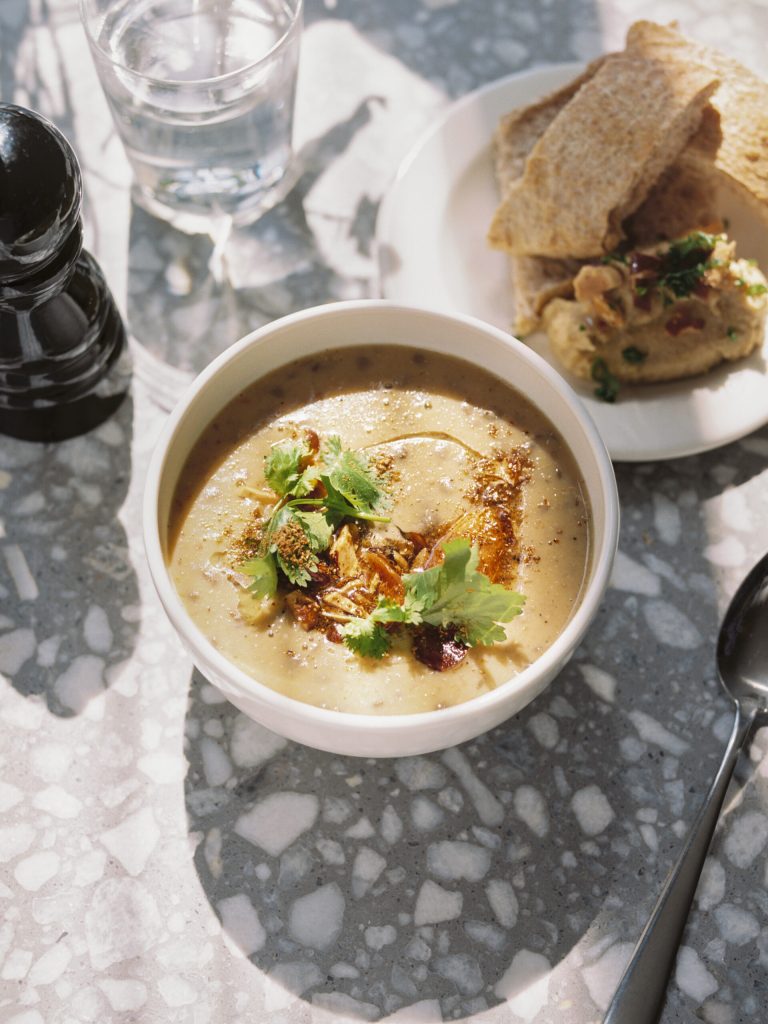
Martin Berg: It’s not in the plans for now…but we’ve talked about it. That is, establishing a sustainable roadmap and moving forward. We want to influence people to eat more vegetables. And maybe, by adding a little goat cheese on top, they’ll think, “Oh, this is really good.” When we opened our menu was 10% vegan, now it’s 80%. So we’re moving slowly.
And we are also promoting plant-based milks as the first choice for coffee. But you also need to respect the culture where you are, because otherwise you don’t sell or exclude people. It’s best to do it in a smooth way so people can change along the way.
I believe there is a kind of barrier in the minds of some people that make them believe that vegan food is not good and it is also up to the chefs to take responsibility and learn to cook this type of food.
Discover our courses on our website.

Gastronomos: And what are the inputs you bring from Sweden? And what do you buy locally?
Martin Berg: All the vegetables we buy locally, the cheeses and fresh ingredients too. But one of my ideas in this cafe is to create a concept to challenge the food industry, which usually uses super cheap ingredients in its products. And why not make it with really good ingredients? For example, buying from a good farm? That’s why I decided to create our own bakeries and produce everything in-house. We create the recipes in our central bakery and from there we ship some bases to the places where we operate. So these bases are made with quality products and with Nordic grains, Nordic butter and so on.
The reason for this is also, as I said, to challenge food companies and show that it is possible to do good things smartly, especially with good ingredients that are also good for the environment.
For example: We make a carrot cake with lots of spices. The dough for this cake is a base dough that we developed in Sweden with lots of grain and little sugar. Then we freeze this mass and send it to the coffee shops where adequate portions for the volume and operation of each coffee are thawed. So we have the same base, but each cafe can be creative in adapting and finalizing the recipes locally. Right now the cake is a carrot cake with cardamom, ginger, cinnamon and pumpkin seeds, and in spring it should change the flavor to an orange cake, for example. We can work with other flavors, based on each season of the year, but with the same base.
Please note that we do not ship these breads and pastries to our cafes in Asia. In Korea, we have a local bakery. In fact, a friend of mine from San Francisco who had a good bakery, expanded to Los Angeles and from there opened other offices in Korea. So they are the ones who produce these items for us there.
Gastronomos: Tell us how you decided to become a chef?

Martin Berg: In my family, food has always been very present. When I was a kid, we ate every meal together, from breakfast to dinner. My grandmother was a baker and baker, but that was before I was born. Anyway, it was part of the family. My parents were also very fond of cooking and in our house there was no difference between food for children and food for adults. Everyone ate the food that was prepared for everyone. I also grew up in the countryside. My other grandparents had a farm, so the food came from the forest to the plate.
But the turning point was when I was 14 years old and I did my first internship to see what it would be like to work in an office. They do this in schools to give you some idea of what to do in the future. I ended up in the postal department of a company sorting, tracking, organizing and distributing envelopes… I did it for two weeks and decided that I would never work with any of that again (laughs).
Over the next two weeks, I went on a second internship. I arrived at a small family bakery and I still remember exactly what happened because upon entering it I opened the door and a huge dog sitting there on a leash looked at me and came running happily towards me. In my house we had a lot of cats, dogs, horses, so at that moment I felt even better to be there and I found everything very welcoming, very cozy. Then the husband and wife, who owned the bakery, came covered in flour and said, “Hello! Are you Martin? Welcome! You’ll be here for two weeks.” And they were very humble, they welcomed me and immediately put me to work. So I started preparing things with my own hands and putting them in the oven. Then sell and see the reaction of people enjoying the food and saying “Oh! This is really good!“. Seeing an immediate reaction to the work you do is like instant feedback! So I said: This is what I want to do!
So at the age of 15 I went to culinary school. The training was only two years, so I graduated at 17 and soon started working. I moved from the Swedish countryside to Stockholm.
For me being a chef, working in the kitchen is a lot like playing in a band. I’m a drummer (I’ve also played the trumpet and guitar) and it’s essential that the group is united. I always thought about it a lot, when I became a sous chef when I was still very young, but also later, when I became a chef. In the kitchen you have a concert at noon and then another show at seven p.m.. And then tomorrow you’re going to do another concert. And the group must be united, each one playing a part in the band. It’s like a constant performance and you’re constantly being judged by your latest performance.
Gastronomos has tours for you to discover the best of France.
Gastronomos: And your convictions related to healthy, durable and sustainable food, when did they emerge and how did they come to light?
Martin Berg: From a young age, the way I grew up, I learned to handle food at home and not throw anything away. A recurring question was: What will we do with the leftovers tomorrow? It could be something new or just making fried rice. Also, we learned how to turn one serving into four servings. These kinds of things were taught to me from childhood.
Over time you get wiser and smarter, and you learn how to use them on a wider scale. And when you look at what’s going on with the weather, I think you also need to take responsibility as an individual. In my case, the thought was: What am I good at? I’m good in the kitchen. How can I use my kitchen to be a part of this, to make an impact and drive change?
Gastronomos: Now you have a cafe, but would you like to explore other things in your kitchen, such as opening a gastronomic restaurant in the future, back to the Michelin idea?
Martin Berg: It’s important that you do what you love. For it can make you good, very good. I see a lot of people who like to focus on Michelin stars and sometimes it can be very destructive for them because the pressure is so much. I’ve been there, I’ve done it. It’s nothing I want to do today. I want to serve good food to people. Now we focus on that and we don’t know what we can do with ARKET in the future either.
It could be a small espresso bar in one place, a gastronomic restaurant in a food hub elsewhere… we don’t know how it will take off. But it’s interesting this phase that we’re in, where we have cafes in all our stores around the world.
We created something with the store. It stimulates other senses. In space you find nice clothes, nice people and suddenly you smell like someone is cooking something, hear the coffee grinder, smell the coffee and think: “Hmm, this is comforting”. And this concept is very well integrated. You take a coffee break if you want, or maybe the next time you go back to the shop you’ll know that you can find good coffee and good food there too.


Gastronomos: Chef, is there something new in gastronomy, something that impresses you or a trend, ingredient that you like to use?
Martin Berg: What I find interesting is that people are cooking more and more vegetables, understanding more and more that you don’t have to be a vegetarian to eat vegetarian food.
In addition, there are also many interesting things in the food technology sector. Chefs need to see what it is and how they should work with technology to learn new things. I think maybe some people still don’t have an open mind to it. I often get invited to food industry meetings to give a chef’s point of view and a creative point of view and I see that some people can be very good and have good technique to make something super sustainable, but the product may need to be worked on to make it really good. It is important that products are already good when launched on the market.


